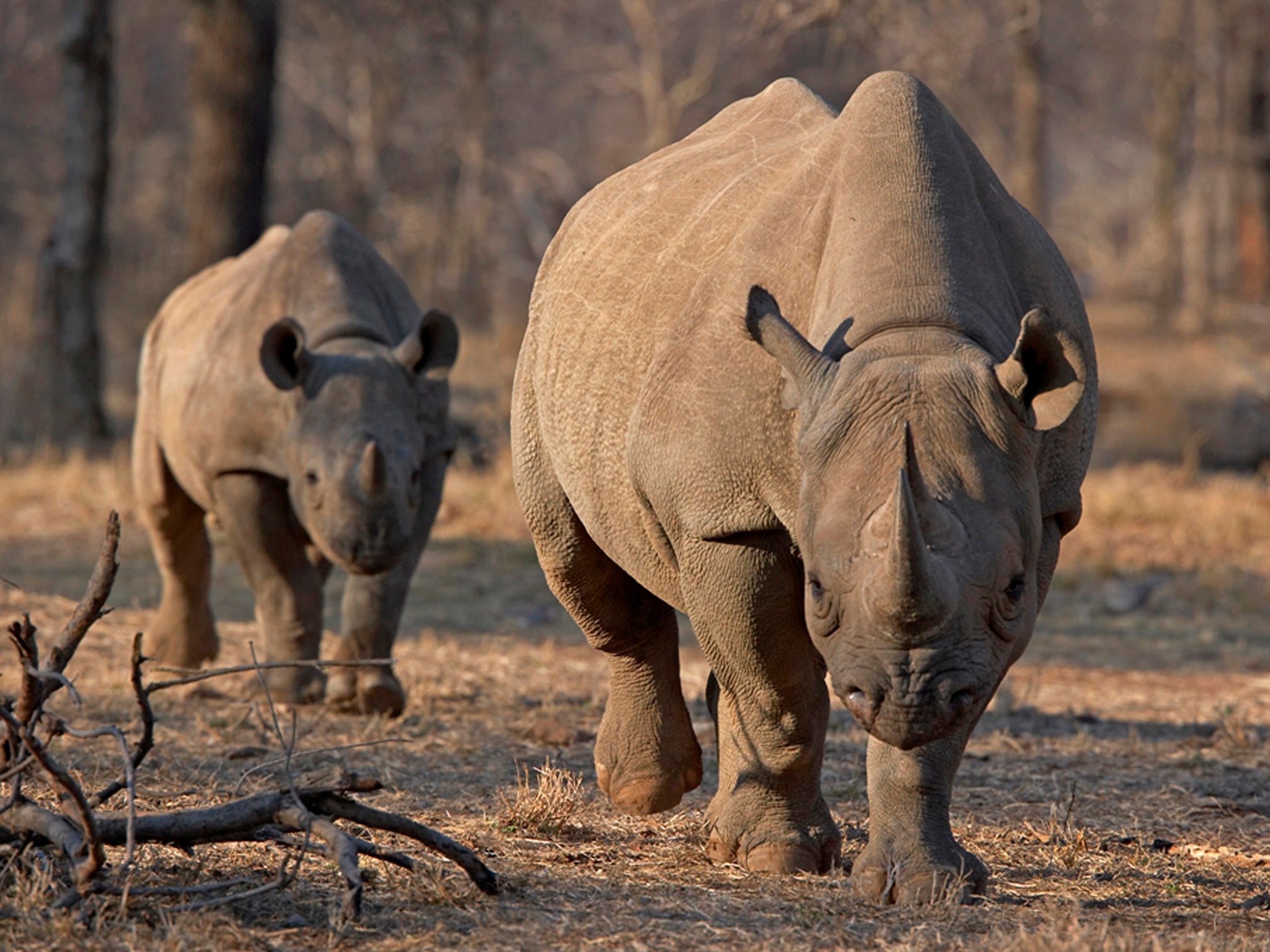Trophy-hunters will be allowed to shoot nearly twice as many black rhinos in South Africa
‘With the relentless onslaught of poaching, it is mind-boggling that they would further add to population losses,’ say conservationists

Trophy-hunters will be allowed to kill almost twice as many South African black rhinos in the future after the country won permission to sell more shooting rights.
The EU was among those supporting the plan to increase hunting of the species, which is classed officially as critically endangered – only one step down from being extinct in the wild.
Conservationists condemned the decision – which doubles the proportion of the total killed to 0.5 per cent – as “mind-boggling”.
Nine black rhinos could be targeted every year after the proposal was passed at the world’s largest conference on the wildlife trade in Geneva, the Convention on International Trade in Endangered Species (Cites), which polices global trade.
Poaching for the illegal trade in rhino horn drove black rhinos to the brink of extinction between 1960 and 1995, as numbers plummeted by 98 per cent, to fewer than 2,500 worldwide.
World's most endangered animals
Show all 17But populations have since doubled to an estimated 5,495, almost 1,900 of which live in South Africa, according to Cites. The vote means up to 0.5 per cent of the population may be shot.
South Africa said adult males would be targeted to protect breeding females, arguing the money raised from hunters would support conservation.
Other rhino-range states, including Botswana, Zimbabwe and Eswatini (formerly Swaziland) – as well as the EU and Canada – supported the move.
Audrey Delsink, of Humane Society International/Africa, said the vote was “hugely disappointing”.
“After attending the SA delegations’ presentation on rhinos in our country and the severe challenges that our rhino population faces through the relentless onslaught of poaching, it is mind-boggling that they would further add to the population losses through hunting, only benefiting a handful of key individuals,” she told The Independent, urging delegates to overturn the decision later in the two-week meeting.
Will Travers, president of conservation charity Born Free, said: “In addition to the devastating impact this will have on the targeted animals, and the potential disruption it could cause to rhino sex ratios over time, the new quota could also undermine the principle of achieving an underlying population growth rate target of at least 5 per cent a year, as set out in the African Rhino Conservation Plan.”
He added: “We challenge the paper-thin claims by proponents of trophy-hunting – including the hunting of highly endangered species such as black rhino – that it delivers significant conservation and community benefits.”
Supporters of the change say those selected will be older, post-reproductive bulls, who can be aggressive and prevent younger males from breeding. They may even kill females or leave them fatally wounded, curbing reproduction rates, they argue.
Kenya’s delegate said the move, along with poaching, would mean almost half the black rhino population increase each year being lost, The Guardian reported.
South Africa agreed not to use the full quota if the rhino population fell below a certain level but did not specify what this would be.
Black rhinos, classed on the IUCN red list as critically endangered, may be worth tens of thousands of dollars in hunting licences.
According to Forbes, a report by Economists at Large found very little money from trophy hunting goes to community development. Statista figures show only about 3 per cent of income supports local people, instead, going on operating expenses, fees and staff wages.
The meeting also backed moves to give seahorses more protection from the aquarium trade and traditional Chinese medicine.
The governments of the US and Sri Lanka have also proposed steps to examine the global trade in songbirds to try to protect wild populations.
Subscribe to Independent Premium to bookmark this article
Want to bookmark your favourite articles and stories to read or reference later? Start your Independent Premium subscription today.

Join our commenting forum
Join thought-provoking conversations, follow other Independent readers and see their replies